Search Results for 'medical officer'
13 results found.
Dr Connolly admits to taking ‘the occasional glass of ale’
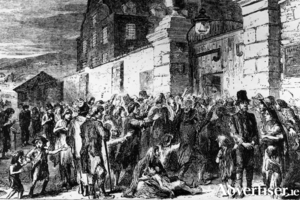
The complaint made against Dr Connolly, the medical officer of the Moycullen dispensary district in October 1876, for neglect of duty, drunkenness and using improper language on the evening that Patrick Barrett’s wife was gravely ill in child-labour, was taken very seriously by the Local Government Board. At a disastrous first meeting between the Board’s inspector, Dr T Brodie, with the members of the Dispensary Committee, and Connolly, Connolly completely lost his rag. He insulted the committee, claiming they were ganging up against him, and had pushed himself against the committee’s chairman, John Kyne, in a threatening manner. So it must have been with some interest that the Board awaited a letter from Connolly offering some explanation for his extraordinary behaviour. Of course the letter, when it arrived, was charm itself. Connolly immediately stated that Mrs Anne Barrett ‘sustained no injury’ from the time between the ticket (supplied by the Relieving Officer, which entitles the bearer to a free service), delivered to the doctor’s housekeeper, and ‘the few hours delay’, that the doctor took to see the patient. Furthermore the doctor claimed he was frightened of Patrick Barrett’s, threats. His housekeeper was alarmed when she heard Barrett say that ‘he would have the doctor’s life’. The letter went on to say that Tom Conneely, Barrett’s brother-in-law, who accompanied Barrett that night, was asked the next day about the patient, repeated that Barrett had said, if ‘the doctor goes to Ballinahalia he will not return alive’. Of course this was a blatant lie. Conneely worked for John Geraghty, the most powerful man in Moycullen, who owned a pub, and the post-office. In addition he was the poor-law rate collector, and a friend of Dr Connolly. The doctor’s letter goes on to explain that a few years ago a gentleman’s windows were smashed at night, and that the police had questioned Barrett about the incident. ‘A threat from such a person’, the doctor wrote, ‘might justly excite terror’.
Distraught husband said doctor was drunk
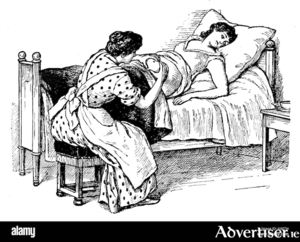
On October 2 1876 Patrick Barrett of Ballynahalia, wrote a long letter to Dr T Brodie, the Local Government Board inspector, bitterly complaining about Doctor James Connolly, who failed, ‘through drunkenness’, to promptly attend his heavily pregnant wife. Barrett demanded a sworn inquiry into the whole sorry business, causing a row that fiercely divided the community of Moycullen, where old loyalties silenced witnesses from giving evidence, leading to a stunning finale of bribery and corruption that would turn the one street county Galway village into a Ken Bruen landscape. Barrett, accompanied by his brother-in-law Tom Conneely, set out briskly to call Dr Connolly, the local dispensary doctor, as his wife, Anne, was dangerously ill in child labour. The doctor’s housekeeper told them the doctor was gone into Moycullen, and not expected home till around 10pm. The two men walked to Moycullen as fast as they could. Just as they passed John Turner’s public-house they saw the doctor standing by the wall. The doctor began to move off towards John Geraghty’s pub, when Barrett asked him to come to his home immediately as his wife was very ill. The doctor asked: ‘Have you a ticket? (at that time for a doctor to make a home-visit a ticket had to be got from Mr Griffin, the Relieving officer for the area), Barrett said ‘No’, but if the doctor came he would get a ticket later. The doctor then asked Barrett to give him one shilling for his fee, to which Barrett replied that he had no money. Doctor Connolly turned away saying: ‘Go to the devil, or to the poor-house’, followed by abusive and derogatory language too unseemly to be included in the report. The doctor walked away leaving Barrett ‘excited’, and at the point where he almost lost his temper; but instead, he thought he would have the law on him. ‘Do I have to go into Galway to get a doctor?’ he asks.
Distraught husband said doctor was drunk
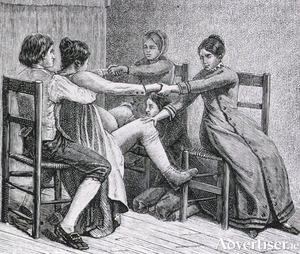
On October 2 1876 Patrick Barrett of Ballynahalia, wrote a long letter to Dr T Brodie, the Local Government Board inspector, bitterly complaining about Doctor James Connolly, who failed, ‘through drunkenness’, to promptly attend his heavily pregnant wife. Barrett demanded a sworn inquiry into the whole sorry business, causing a row that fiercely divided the community of Moycullen, where old loyalties silenced witnesses from giving evidence, leading to a stunning finale of bribery and corruption that would turn the one street county Galway village into a Ken Bruen landscape. Barrett, accompanied by his brother-in-law Tom Conneely, set out briskly to call Dr Connolly, the local dispensary doctor, as his wife, Anne, was dangerously ill in child labour. The doctor’s housekeeper told them the doctor was gone into Moycullen, and not expected home till around 10pm. The two men walked to Moycullen as fast as they could. Just as they passed John Turner’s public-house they saw the doctor standing by the wall. The doctor began to move off towards John Geraghty’s pub, when Barrett asked him to come to his home immediately as his wife was very ill. The doctor asked: ‘Have you a ticket? (at that time for a doctor to make a home-visit a ticket had to be got from Mr Griffin, the Relieving officer for the area), Barrett said ‘No’, but if the doctor came he would get a ticket later. The doctor then asked Barrett to give him one shilling for his fee, to which Barrett replied that he had no money. Doctor Connolly turned away saying: ‘Go to the devil, or to the poor-house’, followed by abusive and derogatory language too unseemly to be included in the report. The doctor walked away leaving Barrett ‘excited’, and at the point where he almost lost his temper; but instead, he thought he would have the law on him. ‘Do I have to go into Galway to get a doctor?’ he asks.
How Athenry recovered from its smallpox epidemic
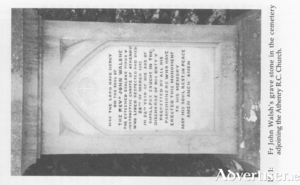
The public sanitary conditions in Athenry, were regarded as a disgrace, and not conducive to a healthy environment when an epidemic of smallpox erupted there in the spring of 1875.
Smallpox patient sparks riot in Loughrea
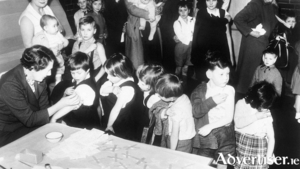
The initial refusal by the Loughrea Workhouse hospital to accept smallpox patients was smartly over ruled by the Local Government Board (LGB). It suggested that some out-houses or offices, at the hospital, could be converted to receive the patients while keeping them separate from the other sick. It was satisfied that the resident doctor there, Dr Lynch, ‘will afford valuable advice and assistance’. The board warned that it was essential smallpox sufferers were kept isolated from other people. However, the Loughrea Board of Guardians, with responsibility for the hospital, did not heed the rebuke.
Should the Irish diaspora have remained at home to fight the good fight?
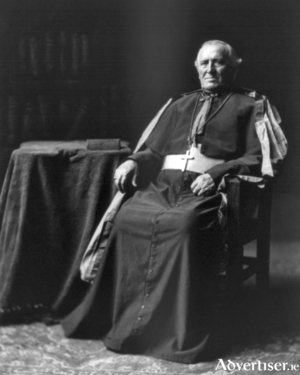
Although assisted emigration was frowned upon by some bishops and by the Land League leaders Michael Davitt and Charles S Parnell, there were some assisted schemes that were carefully planned, and in many cases worked well. The schemes that worked best were those which helped Irish families to avoid settlement in the great eastern cities of America where large numbers were caught in huge, stinking slums where it could take a generation or two to escape from.
Lack of social distancing aided second phase of ‘Spanish Flu’
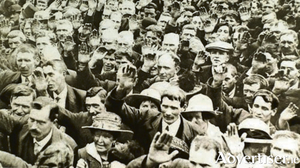
[Week II. Read Part I.] The 1918 General Election on December 14 was the most significant election in modern Irish history. Following the events of World War I, the Easter Rising, and the Conscription Crisis, the whole island was caught up in fierce debate as to its future. The result was a sweeping victory for a radical Sinn Féin, which promised to establish an independent Irish Republic. The moderate Irish Parliamentary Party, which had dominated the Irish political landscape since the 1880s, was wiped out; while in Ulster the Unionist Party took power.
Vintners stress need for hospitality sector to open together
Pubs, restaurants and cafes must be allowed the opportunity to open together when lockdown restrictions are lifted, as the Government’s own data proves private dwellings, not hospitality outlets, are the primary source of Covid-19 outbreaks.
Meeting to oppose cuts to Belmullet Hospital and Áras Deirbhle Nursing Home
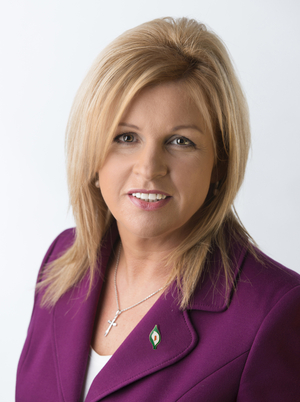
Sinn Féin Senator Rose Conway-Walsh has organised a public meeting to take place in the Talbot Hotel in Belmullet on Monday evening at 8pm to oppose agency staff cuts announced at Belmullet Hospital and Áras Deibhle Nursing Home.
Gregory grandson reads ‘An Irish Airman’ at RAF centenary celebration
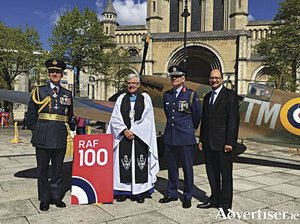
A great grandson of Galway's World War I fighter ace Major Robert Gregory, Robin Murray Brown, read WB Yeats' famous poem An Irish Airman Foresees His Death in Belfast last Sunday. St Anne's Cathedral was filled to capacity for a service to commemorate the centenary of the Royal Air Force (RAF), which succeeded the Royal Flying Corps in which Major Gregory flew. Major Gregory joined the war effort in 1916 and was awarded the Military Cross for gallantry. He was also awarded the Legion d’Honneur — France’s highest honour.

